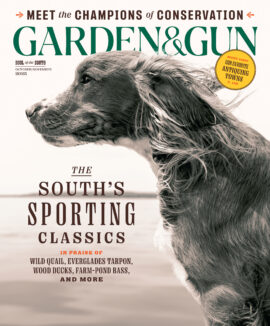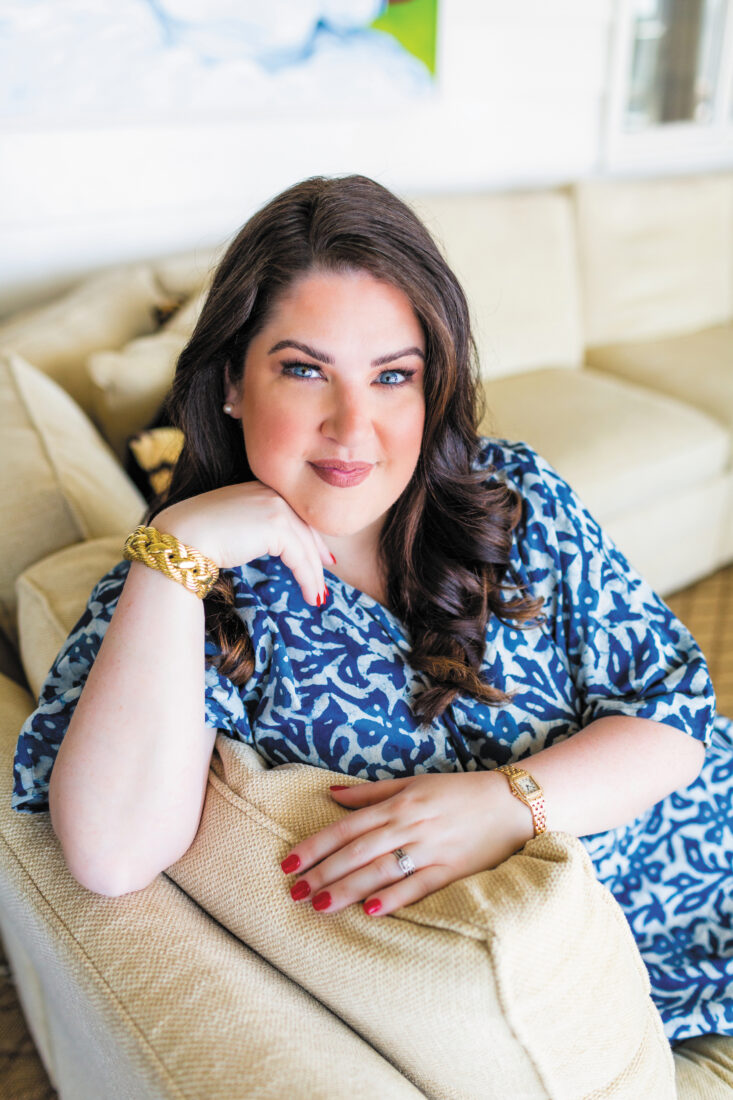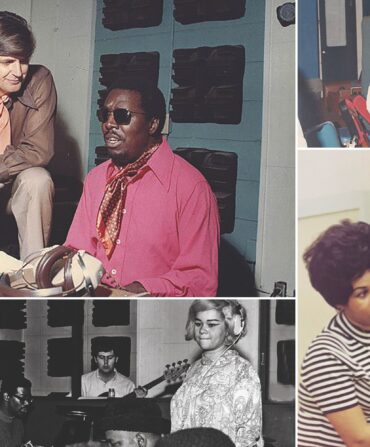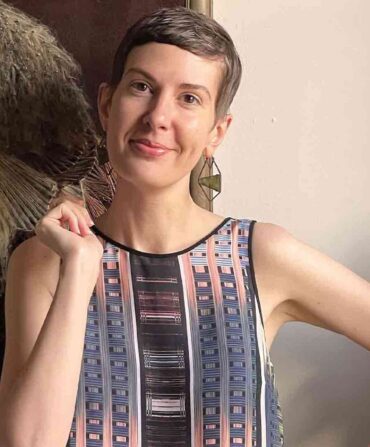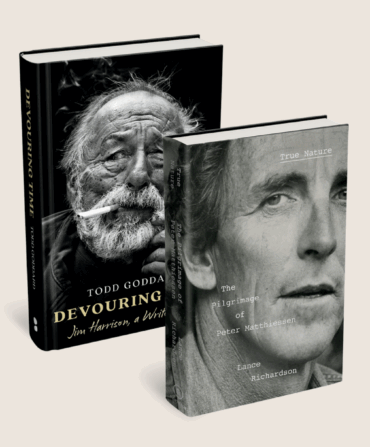By the time I reached the acknowledgements page of Victoria Benton Frank’s debut novel, My Magnolia Summer, I was in tears. For those who’ve read her mother’s books—and judging by the millions sold, most of us have—seeing the daughter of Dorothea Benton Frank, the New York Times bestseller and high priestess of beach reads, take up her late mom’s mantle was, well, touching:
“Momma, how can someone thank someone for a lifetime? I finally did it! I finished the f***cking book! I will spend the rest of my life honoring your memory in any way I can.”
Pass the tissues, please. I have a sneaking suspicion I won’t be the last reader to find themselves crying and laughing over this book. Victoria brings the same Frank sense of humor that endeared readers to her mother’s cast of characters. And in My Magnolia Summer, a cast they are. We meet two sisters, Magnolia, a New York City chef, and Violet, a professional Lowcountry wedding photographer. Then there’s the girls’ grandma, the family matriarch who raised them and runs a beloved Sullivan’s Island restaurant, and their wayward mother, an alcoholic in desperate need of an intervention.
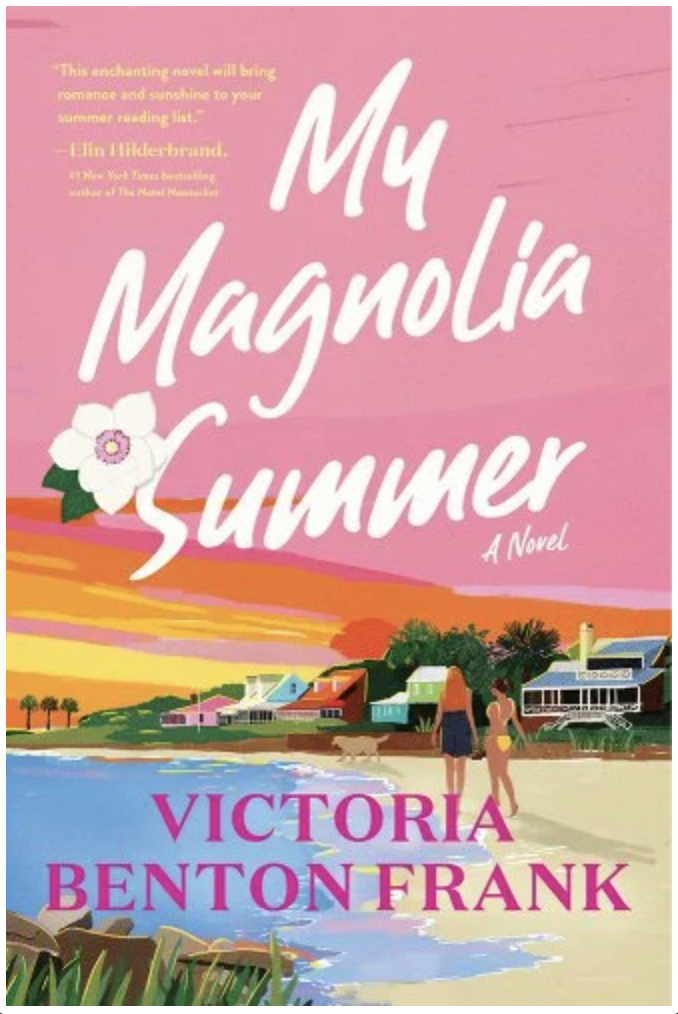
It’s an ensemble story that could have easily come out of Victoria’s famous mother’s imagination. But the work isn’t derivative. The author says writing this book was never about stepping into Dorothea’s spotlight. Rather, it’s about carrying on her mom’s light even after she’s gone.
Did you always plan on following in your mother’s writing footsteps?
No. Halfway through college at the College of Charleston, I decided I really wanted to go to culinary school, but my parents were like, “No, we paid for college.” So I finished and then moved to New York City, but I needed a job. My dad was like, “You’re a seller, you have a theater degree, you need to sell things,” so I got a job in property management for commercial real estate, and it was the most horrifying, boring, awful job ever. I decided to take back my joy and go to culinary school at night. I worked in kitchens in New York, and I met my husband in culinary school, and we had a phenomenal, intense life. Then we moved to Connecticut to run his parent’s restaurant, and that was as much of a disaster as you might expect. I took a look around and thought, I really want to move back to Charleston. So we did, and I got a job here at Charleston Cooks.
Of course. Charleston Cooks (since closed) makes a cameo in your book.
That’s right. I loved working there, but I was working enormous hours and I wasn’t making any money and my mom was like, “You know what you could do? Write a book…” Which is like Madonna telling her daughter she could be a singer! I was like, “Sure, I can tell a funny story, but this ain’t gonna work like it worked for you.” My mom didn’t go to school for writing. She never graduated college. She took one creative writing class and became a bestseller. [But] I’m completely untrained to do this. I have no business writing a novel. But she said, “I think you can do it. Why don’t you just sit down and see what happens?”
That was seven years ago?
I started the book seven years ago. Then I got married, then I got pregnant, then I got pregnant again. Then I lost my mother. Then I had two children in a pandemic. So it was a lot of start and stop. I went from being a girl to a full adult through the course of writing the book.
Did your mom have a chance to read it before she passed?
I got about fifty pages into writing it, then she stole my pages and burst into tears. She said, “If you don’t do this, I’m going to beat you over the head.”
In a way your story mirrors the arc of My Magnolia Summer, a tale about coming home. In it the protagonist, Magnolia, returns to the Lowcountry after her mom and grandmother are in a car accident only to discover that the family’s Sullivan’s Island restaurant, the Magic Lantern, is being run into the ground.
My mom told me to write a book I would want to read. I love Southern women. I love resilient women. I love women who have dreams and then go after them and are fearless. And I think there’s something about Southern women, well, all women on some level, where we have to be brave at some point in life. That’s what life requires of women, especially mothers, especially working women, especially working mothers! We have all of these trials and tribulations that test us, and we’ve got to keep our crowns straight.
I think that’s what fans also appreciated about your mom’s books, the way they spoke to the average woman. Speaking of fans, what’s it like thinking about how your mom’s readers will react to your book? Is it a bit intimidating?
I call it my inherited audience. I inherited an army of grandmas and they are phenomenal women and all I want to do is make them proud. I don’t think they have expectations for me to be my mother, but I do think they have an expectation for me not to let them down. They really are rooting for me, and I’m so grateful.
You’re carrying on a legacy that’s not just as the daughter of a bestseller but as the daughter of a beach-read bestseller. Like “chick lit” or “rom-com,” the beach read often gets disparaged. How do you feel about that?
My mom was very insecure about that, and I never understood that. I may not be a serious person, but I’m serious about my writing, and it’s still a discipline and I’m still getting it done. I’m still getting my book published. This is the same road as any serious writer with elbow patches and a whiskey addiction and a log cabin in the woods.
I’m sitting here in a Disney T-shirt and spandex, but I’m still a writer. And personally I love to make people laugh. It makes me really happy. And if my books make you laugh and make you feel something and feel good, then that’s a bigger compliment. Those are the books that get you through things like going through a terrible divorce, dealing with an idiot husband, or going through your mom having chemo.
I would love this to be a book that you read in four days on the beach. That is nothing to hang your head about because at the end of the year, when you ask yourself, “What was my favorite book to read?” you’re going to be like, “When was I happy? When I was on the beach. I loved that book.”

